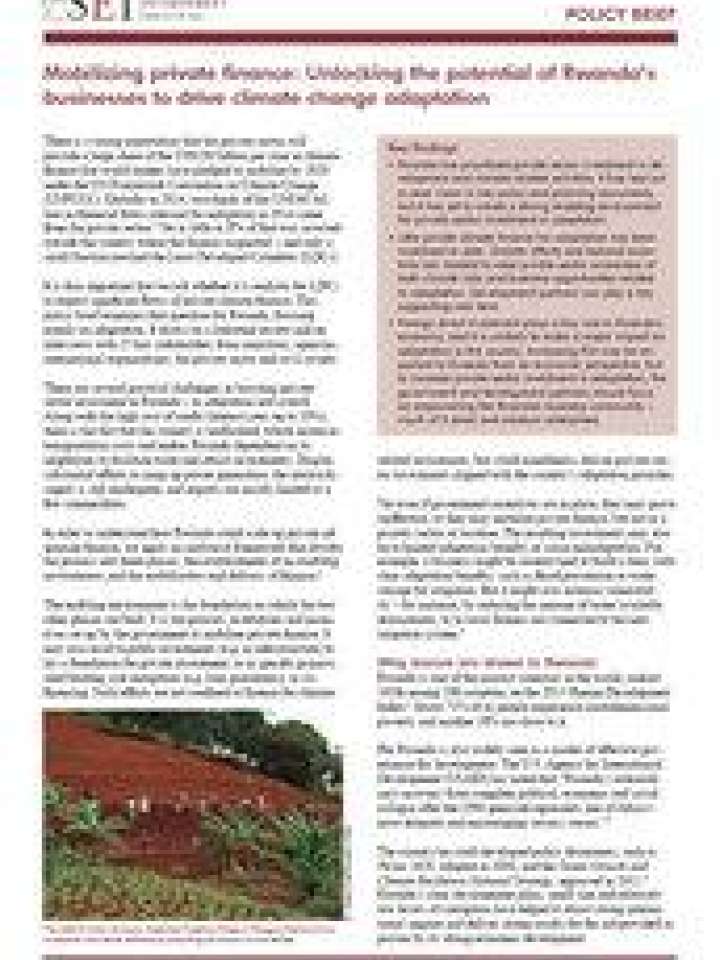Mobilizing private finance: Unlocking the potential of Rwanda’s businesses to drive climate change adaptation
This policy brief examines whether it is realistic for Least Developed Countries (LDCs) to expect significant flows of private climate finance. The brief discusses the case of Rwanda, focusing mainly on adaptation. It draws on a literature review and on interviews with 25 key stakeholders from ministries, agencies, international organisations, the private sector and civil society.
The policy recommendations are:
- While there are strong ambitions for private-sector climate finance, the policies in place in Rwanda have not translated into an enabling environment for private investments in adaptation activities. There are further policy needs before the government’s vision can be turned into enabling mechanisms.
- Corporate social responsibility initiatives are a good first step to mobilise additional private finance and scale up private investments. However, there is a need for a systematic approach to moving beyond that step and prove the business case for investing in adaptation. There is a need for more awareness-raising, capacity building and information-sharing between the public and private sectors.
- International donors and the Rwandan government should make adaptation part of a broader development agenda, using scarce funds for larger initiatives as a way to entice the private sector to contribute to adaptation as a co-benefit of development projects.
- Readiness support is a good way for international partners to help advance domestic efforts, but more is needed. It is important to pool international resources and include different stakeholders and actors, to focus on capacity-building, technology transfer and finance. The Green Climate Fund is a key actor in this regard.
Explore further
